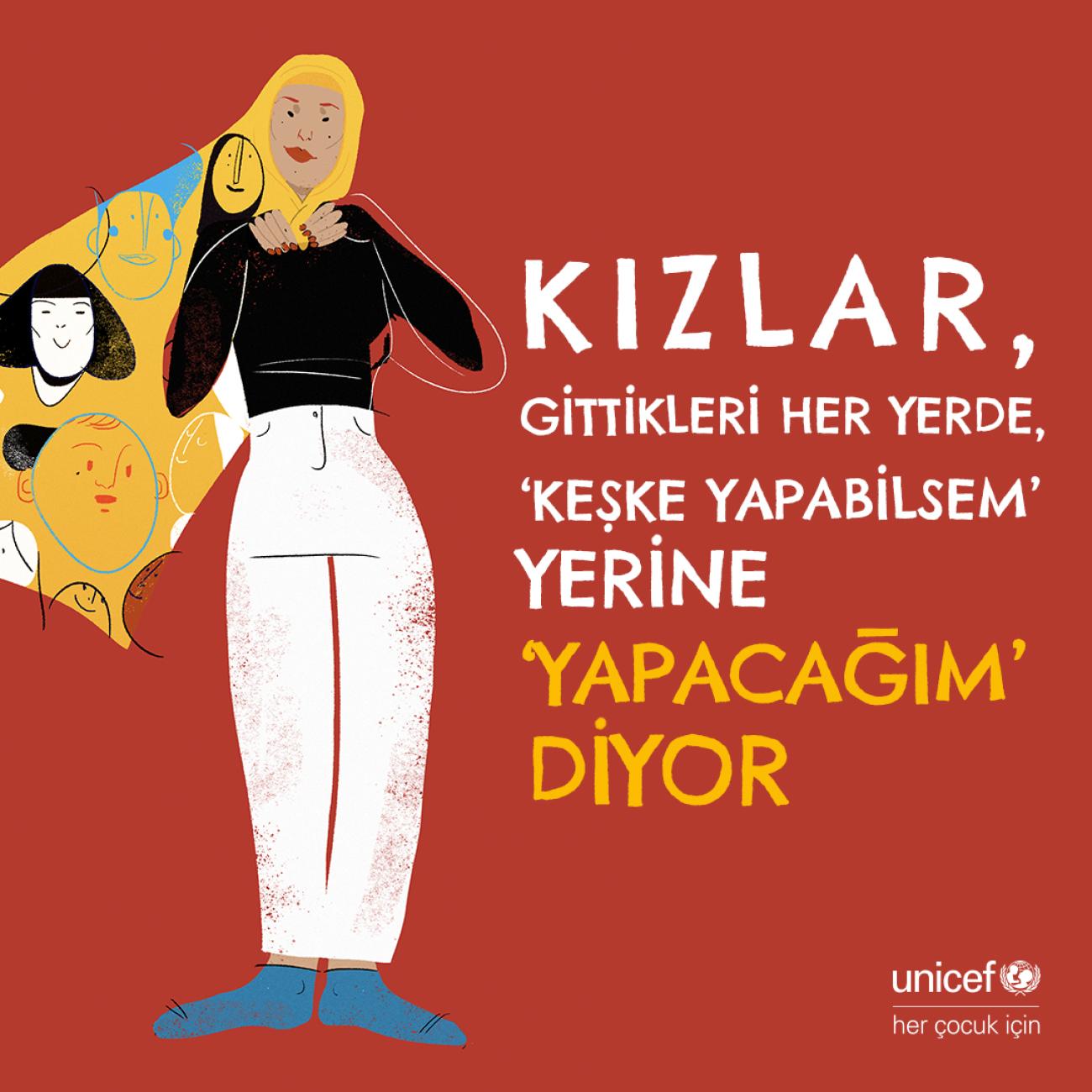Under the theme “Be Bold. Building Equity for Girls”, leaders and policy makers spoke up on a host of important topics, to protect and empower young women.
In her opening remarks, Deputy Secretary-General Amina Mohammed told girls: “Be bold in your demands and be confident in the steps you are taking”.
“As we celebrate the achievements and potential of girls, we must keep up the pressure for change”, she said. “Your solutions and ideas are essential to step up the pace of progress”.
Diversity and Inclusion
The discussion on race, sexuality and equity, shone a spotlight on those who identify as lesbian, gay, bisexual, trans, queer, intersex or asexual (LGBTQIA) as well as girls of colour.
While LGBTQIA girls experience discrimination and bullying that can lead to avoiding school and low personal and academic self-esteem, girls of colour have a higher risk of verbal, physical and sexual abuse, the online gathering heard.
Activists speak out
Activist Molly P from the United States came out as “a proud bisexual” at the age of 11.
With a supportive family, she started the Pinta Pride Project and threw her town’s first LGBTQIA+ parade in 2019, but wondered what plans were being secured to “help trans girls worldwide who do not have equal protection under the law?"
Also, from the US, activist Oumou, of Girls for Gender Equity based in New York, called for justice and reparations for young black women.
She pointedly noted that “40 per cent of black girls and women experience rape or sexual assault during their lifetime”.
"Black girls deserve to live in a world where they are valued” and protected, upheld the young activist, asking “How can the UN work to support the Black Girls Bill of Rights in our global community?”
‘Raise our voices’
Nafissatou Diop, from the UN Population Fund (UNFP), responded that the UN is supporting governments to “take forward international human rights obligations”.
She also underscored the need to “raise our voices against expressions of racism and gender inequalities”, saying that girl's voices are powerful and “count to make a difference”.
As UNFPA works to empower women and girls, Ms. Diop asserted: “Your voice is your equal future”.
“Every girl is a powerful change agent in her own right”, she stressed, “activists like you, the girls, can address the gaps”.
Menstrual Equity
Meanwhile, 15-year-old Ugandan activists Patience and Kashish highlighted that girls in their community were dropping out of school because they lacked access to sanitary products.
Period poverty
And menstrual stigma is not reserved for Africa. In the US, Girl Scout Julia, co-founded her school’s first Intersectional Feminist Club, whose survey revealed that 76 per cent of female students missed school also, because they could not access menstrual products.
"I believe menstruation should not be seen as a taboo topic and…menstrual products are necessities, not luxuries!", she upheld.
To tackle this issue, Julia created an action committee introducing legislation for free menstrual products for under-resourced Colorado schools.
Although COVID-related budget cuts prevented the bill from passing, Julia was able to bring menstrual equity to the forefront of her community and gain agreements from the state’s two largest districts to make menstrual products free and accessible in their schools.
UN Women Anita Bahita agreed that girls need inexpensive affordable care.
“Innovative ideas need to be replicated and available across the board with help from local community leaders to government especially during the time of COVID”, she said, underscoring that more government leadership and engagement was necessary to keep girls in school.








